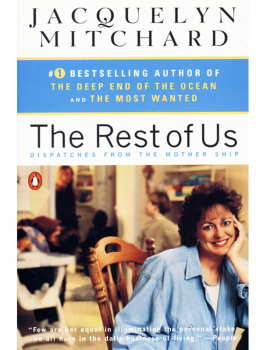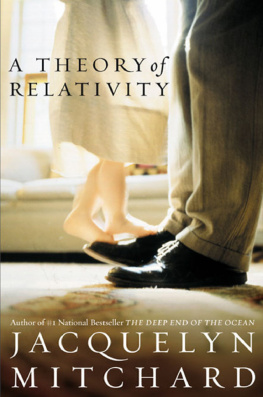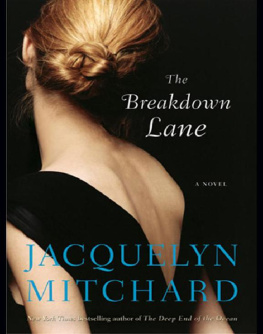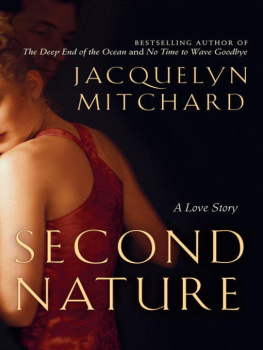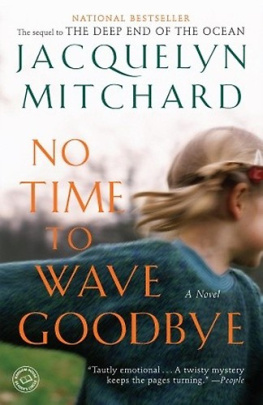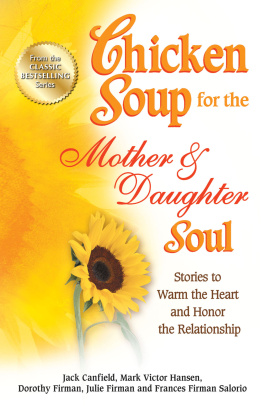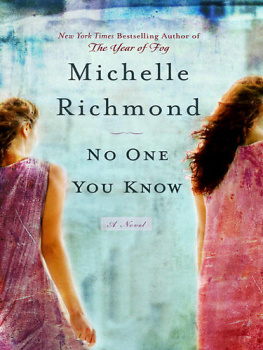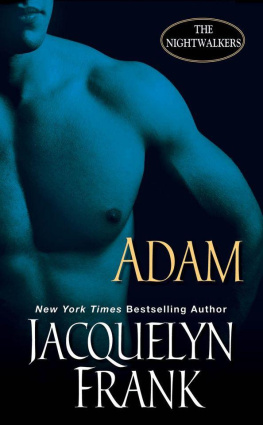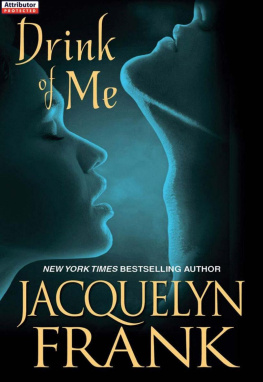Jacquelyn Mitchard is a bestselling novelist, a nationally-syndicated columnist, and the mother of five children. Her newspaper column, The Rest of Us, originated in the Milwaukee Journal Sentinel and is now distributed nationally by Tribune Media Services. Both of Mitchards novels, The Deep End of the Ocean (1996) and The Most Wanted (1998) were published to widespread critical acclaim and became national bestsellers. The Deep End of the Ocean, which was the first selection of Oprah Winfreys Book Club, has been made into a film starring Michelle Pfeiffer, scheduled for release in February 1999.
Mitchard lives with her husband and children near Madison, Wisconsin.
Its a peculiar feeling, this, writing an introduction to a book of my own essays.
Its kind of like inviting a crowd of strangers to my house for dinner, but meeting them at the door to explain why they shouldnt make fun of the furniture.
Collecting these essays made me think of paging through a photo album of snapshots, not just of past events, but actually of previous selves. Science says that the body replaces its entire population of cells in seven years. Thats the body of time these essays cover; and in my case I can feel the fact. Im another person entirely from the one I was when most of these pieces was writtendifferent down to the molecular level, living the world through another lens. And yet these snapshots of the person I once believed Id always be are mine, too.
When I began writing these essays, I was a securely married mother of three, expecting a fourth child. Times were lean, but my newspaper-editor husband and I had hammered away many of the twists and traps of early married life and hit a smooth stride. Through a long struggle with infertility, the unexpected joys of adoption and birth, and a series of family cataclysms, I wrote everything I could to support my familyfrom criticism to cover stories to speeches for Donna Shalala, who would become the longest-serving cabinet secretary in presidential history. After my husband died, young and quickly, from cancer in 1993, I wrote with even more urgency and purpose, those of a suddenly single and financially strapped mother. I started my first novel, The Deep End of the Ocean, at forty, and it was published in 1996 with the kind of success that blew open the doors of my professional life.
Only one thing never changed. I never stopped, not once, even for a week, writing my beloved newspaper column, The Rest of Us, which followed me all the way from my Cosmo-girl period to the years of early motherhood, from a stomach that I prized for its concave contour to a stomach I prized for its cesarean scar. My column was my constant. It served as the springboard for essays I later wrote for magazines and for stories I later wrote as fiction. I kept it in my hip pocket as I navigated from deserts to high sunflower fields in my career, and through the narrow straits of new motherhood when I decided to adopt a baby girl on my own, past moral crossroads of loneliness and new love. I first wrote it for Madisons The Capital Times and then for the Milwaukee Journal Sentinel, and then in syndication for Tribune Media.
But I never changed the name, though by journalistic etiquette I should have. I always wrote The Rest of Us with a secure knowledge of my audience. The Rest of Us was me. Now, for the first time, I have to try to explain what that name meansboth to those of you who have read my essays and to those of you who never have.
Let me propose the Melody Knoll paradigm.
Melody Knoll lived across the hall and one door down from me when I was in college, and it wasnt because she was beautiful and superbly confident (though she was) that I watched her like a movie.
It was that she knew.
She knew she wanted to be a physical therapist because it was socially relevant and yet well-paying; she knew how to find the best, sanest, gentlest guys, and was never even tempted to drive past their houses at midnight to see if they were home. She seemed to have been genetically endowed with the ability to approach any system in a clear and supremely pragmatic wayfrom faculty advising to sorority rush to her checking-account balance. Melody understood, when her peers were wondering if there was vitamin C in Thunderbird, the importance of regular exercise and lots of water. She told me that my wrists would not break out in hives every night over calculus if I began looking at the problems as logical puzzles, instead of slamming the book closed in horror before I even read them.
As an adult, I began to realize that there was more than one Melody in the worldthat, in fact, there were a great many. They knew. Some of them knew the political answer, and some the health answer, and some the romantic one. Though I have always wanted to be or marry such people, I would not dare write a column for them.
I cant help but write for the rest of us. These are people like me, who alternate between the absolute conviction that we could, if need be, save France, and the desperate uncertainty about whether to get out of bed on a given Tuesday. Who believe wholly in the concept of a good, free, modern, public infrastructure and yet want to blow up the sewer system when we get our tax bills. We have strong moral cores, but waffly ways. The question So, would you rather be good or be happy? can give us pause every time. Were just not entirelysure. But we can see that the world always seems filled with emperors running around naked and not enough people willing to yell and point.
When I read that men arrested for domestic violence were able to get their guns back for deer-hunting season, I had to write about that. When I read that Martha Stewart, bless her heart, suggested that parents individually stencil their childrens lunch bags in seasonal colors to make them more creative, I had to write about that.

